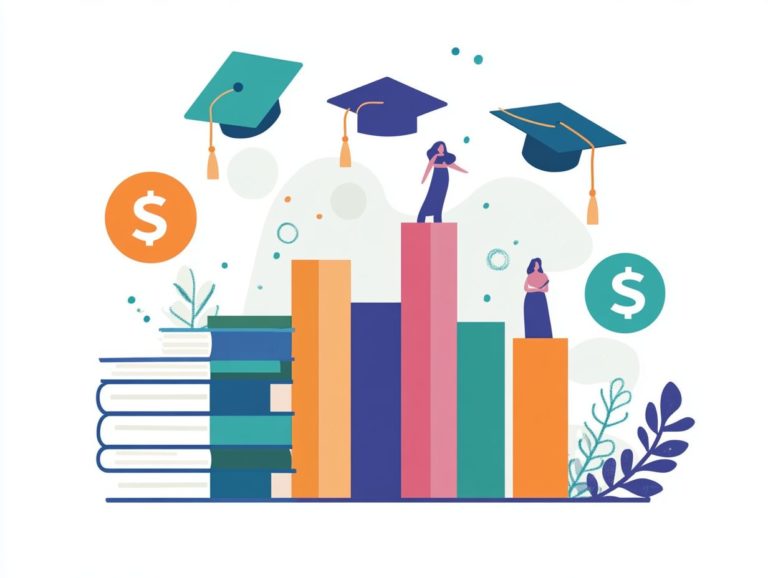5 Key Elements of Effective Online Bachelor’s Programs
Choosing the right online bachelor’s program can significantly shape your educational journey. With many options at your disposal, it s crucial to understand what makes a program effective.
This article delves into five key elements that elevate the top online degree programs covering everything from accreditation and reputation to the flexibility of learning formats.
It also examines the importance of student support services, faculty qualifications, and opportunities for hands-on learning and networking.
Keep reading to discover how you can make the best choice for your future today!
Contents
- Key Takeaways:
- 1. Accreditation and Reputation of the Institution
- 2. Flexibility and Convenience of Online Learning
- 3. Availability of Student Support Services
- 4. Quality of Faculty and Course Curriculum
- 5. Opportunities for Hands-On Learning and Networking
- What Makes an Online Bachelor’s Program Effective?
- How Can Students Ensure the Accreditation and Reputation of an Institution?
- What Are the Different Types of Online Learning Formats?
- What Types of Support Services Should Be Available for Online Students?
- What Qualifications and Experience Should Online Faculty Have?
- How Can Online Programs Provide Hands-On Learning and Networking Opportunities?
- Preguntas Frecuentes
- Cu les son los 5 elementos clave de programas de licenciatura en l nea efectivos?
- C mo contribuye el dise o y la entrega del curso a un programa de licenciatura en l nea efectivo?
- Por qu es importante el compromiso del estudiante en los programas de licenciatura en l nea?
- C mo impacta el apoyo y la interacci n de la facultad en el xito de los programas de licenciatura en l nea?
- Por qu es importante una estructura t cnica s lida para el xito de los programas de licenciatura en l nea?
- Qu tipos de servicios de apoyo al estudiante deber an estar disponibles en programas de licenciatura en l nea efectivos?
Key Takeaways:
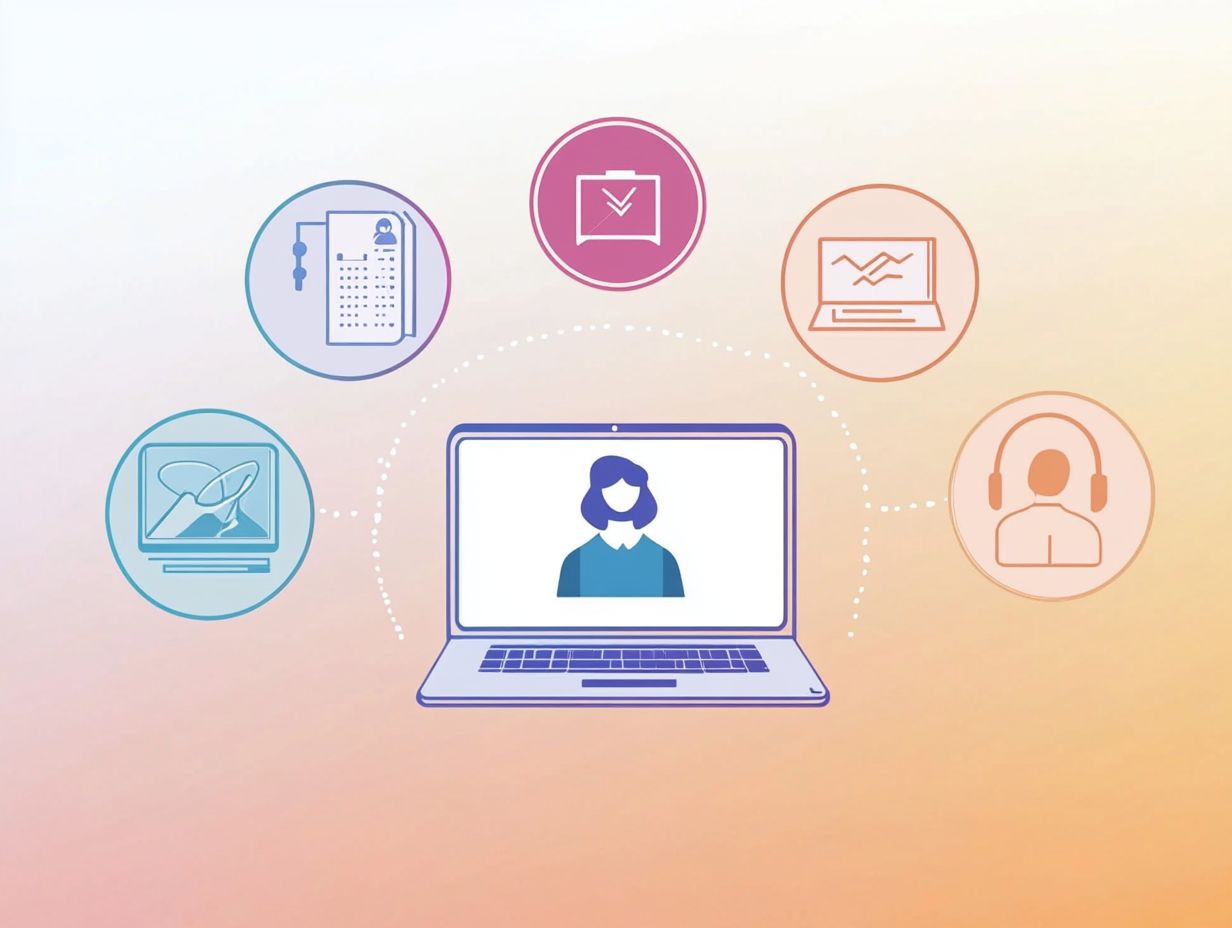
Accreditation and reputation matter. They show how effective an online bachelor’s program can be. When evaluating options, consider the key factors for choosing an online degree. Flexible online learning makes education accessible to many, and student support services are crucial for online success.
1. Accreditation and Reputation of the Institution
Accreditation and institutional reputation are essential in determining the value of your online degree, especially in a competitive landscape where programs from esteemed institutions like Georgia Tech stand out due to their quality and job placement rates.
Choosing an accredited program enhances your degree’s credibility and impacts your decisions regarding financial aid and distance learning opportunities.
Without this vital endorsement, you may find your qualifications undervalued in the job market, as many employers prefer candidates from accredited institutions.
Accredited programs tend to have higher graduation and retention rates, showcasing their dedication to effective teaching practices and robust student support, which is particularly important when understanding the curriculum of online bachelor’s programs.
If you’re a prospective student, take time to research the accreditation status of online programs. Check with recognized accrediting bodies, explore student reviews, and evaluate alumni outcomes. Additionally, consider looking into 5 ways to stay motivated in an online bachelor’s degree program to help you navigate the overwhelming array of options and select programs that will genuinely propel your career and academic goals forward.
2. Flexibility and Convenience of Online Learning
Online learning offers unmatched flexibility and convenience, allowing you to choose between asynchronous formats and synchronous courses. This flexibility lets you fit your studies around your busy life.
This adaptability is especially beneficial if you’re balancing work, family responsibilities, or other obligations that demand your attention.
With various formats available from recorded lectures to live discussions this educational approach ensures you find a style that aligns with your preferences and pace.
In this landscape, mastering time management is essential. Those who effectively allocate their study hours and break tasks into manageable segments typically find greater success.
Flexible environments not only reduce pressure but also encourage active engagement, enhancing your overall learning experience and fostering academic achievement.
3. Availability of Student Support Services
The availability of student support services is vital for you as an online learner. These services offer academic assistance, financial aid options, and career resources that can significantly enhance your program outcomes.
These resources help you navigate your educational journey while cultivating a sense of belonging in the digital landscape.
For instance, academic advising can assist you in setting realistic goals and crafting personalized learning plans. Financial aid guidance provides vital information about scholarships, grants, and loans.
Career support services, including resume workshops and job placement assistance, help you transition smoothly from academic life to a fulfilling career.
Together, these services create a nurturing community network, allowing you to connect with peers, mentors, and professionals, ultimately enriching your learning experience.
4. Quality of Faculty and Course Curriculum
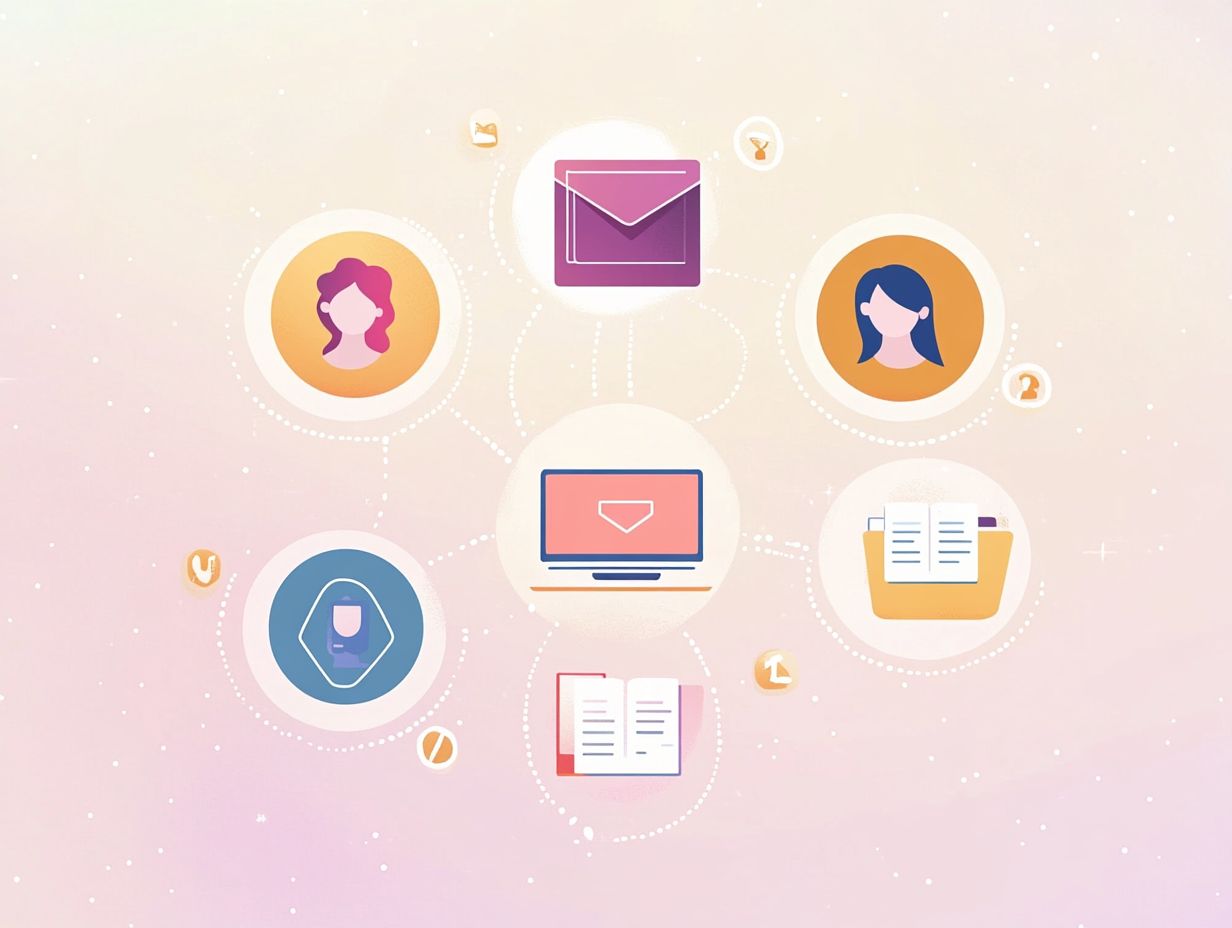
The quality of faculty and the rigor of the course curriculum are essential pillars of program excellence. These factors ensure you receive engaging course materials and benefit from the insights of knowledgeable instructors, including digital producers and learning design specialists.
When faculty members possess advanced qualifications and significant real-world experience, they not only deliver comprehensive content but also inspire critical thinking. This encourages active participation from you and your peers.
A thoughtfully designed curriculum aligns with educational objectives and accommodates diverse learning styles, boosting your learning experience.
Robust course assessments are crucial for measuring your progress and understanding. They provide invaluable feedback for both you and your educators.
Ultimately, experienced instructors in online education facilitate compelling learning experiences and elevate academic standards, creating a rich educational environment that drives your success.
5. Opportunities for Hands-On Learning and Networking
Hands-on learning and networking are essential elements of a distinguished online degree program. They allow you to gain practical experience while connecting with peers and professionals through a vibrant alumni network, much like those found in 5 online bachelor’s degree programs with high student satisfaction.
These experiences deepen your understanding of theoretical concepts and nurture personal growth and confidence, making you more competitive in today s job market.
Real-world projects integrated into the curriculum enable you to apply your skills in meaningful settings, steering program outcomes toward success. Networking opportunities lead to job openings and mentorship, significantly enhancing your educational journey.
By engaging with industry professionals and fellow students, you cultivate relationships that could be pivotal for your career advancement. This is particularly true in the context of online education, where 5 reasons online bachelor’s degrees are gaining popularity highlight the benefits of hands-on learning as a cornerstone of effective programs.
What Makes an Online Bachelor’s Program Effective?
An effective online bachelor’s program stands out with its balanced blend of quality, engaging course structure, accessible faculty, and robust student services. Before making a decision, consider these 5 questions to ask to ensure high job placement rates and student satisfaction.
The way courses are structured is crucial. Course materials must be relevant and aligned with industry standards. When faculty members actively engage with you, it enhances your learning experience and opens up opportunities for direct interaction with seasoned professionals.
Comprehensive student support services, like academic advising and career counseling, nurture both your personal and professional growth.
When these components come together seamlessly, they elevate your overall educational experience, boosting your confidence and readiness for the job market.
How Can Students Ensure the Accreditation and Reputation of an Institution?
To ensure your chosen institution holds the right accreditation and maintains a solid reputation, research the accredited programs available. Evaluate the quality indicators of those programs and consider institutions like Georgia Tech, which is renowned for its commitment to online education and robust financial aid options.
Utilize recognized databases like the U.S. Department of Education’s Accreditation Search tool or the Council for Higher Education Accreditation s (CHEA) database. These resources provide verified information on both institutional and program accreditation status, helping you distinguish reputable options.
Reading reviews from alumni and current students can also provide valuable insights into the educational experience and networking opportunities after graduation.
Grasping these crucial elements is essential for making informed choices that align with your long-term career goals. Start your research today to secure your future!
What Are the Different Types of Online Learning Formats?
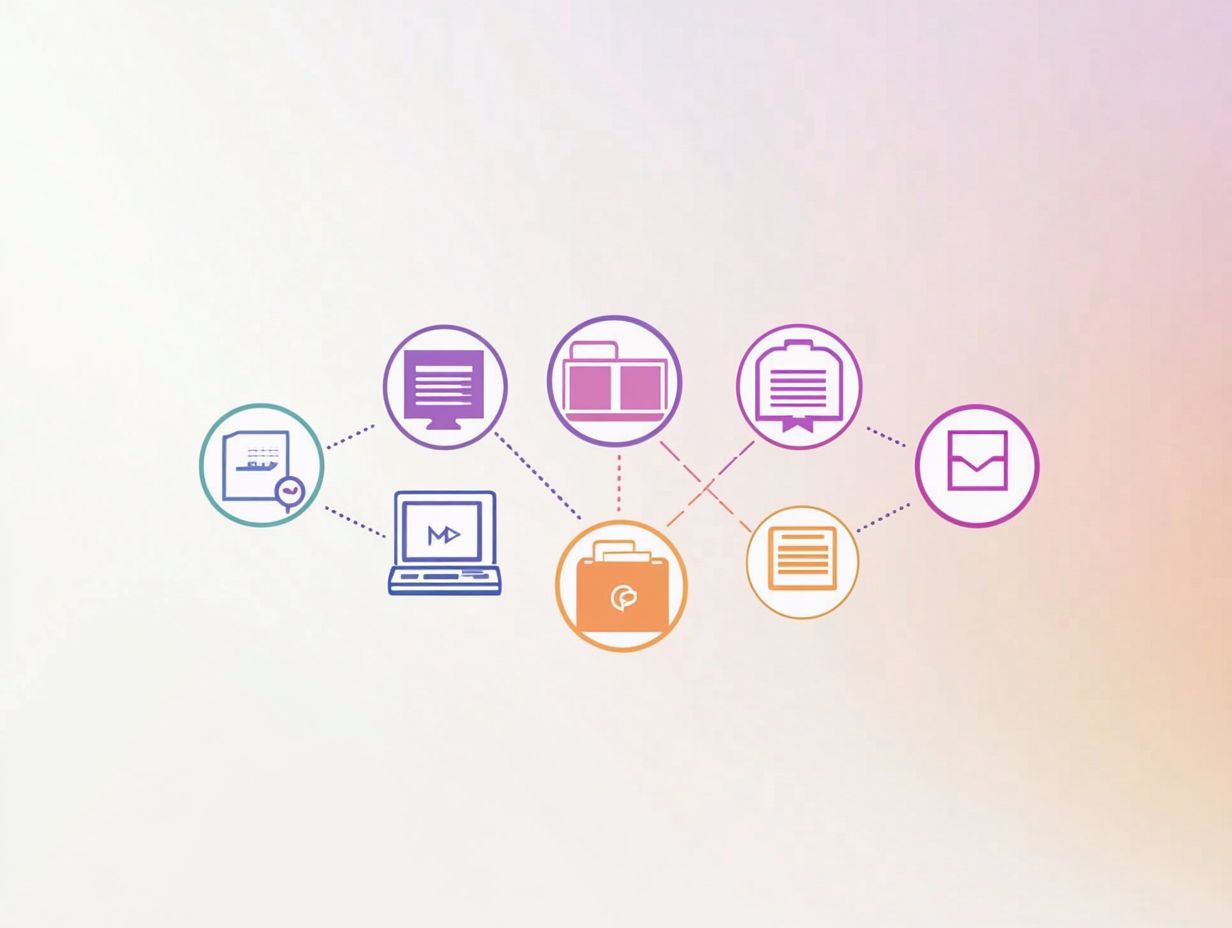
Online learning offers a variety of formats, including asynchronous learning, which allows you to progress at your own pace, and synchronous courses that require real-time participation. Each format caters to different learning environments and course requirements.
Asynchronous formats provide you with the flexibility to access materials whenever it fits your schedule. This flexibility is especially advantageous if you re juggling work or family commitments.
Synchronous learning creates a vibrant, interactive classroom atmosphere through live discussions. This enables immediate feedback and collaboration with your peers, and each approach comes with its own set of benefits.
While asynchronous courses cultivate self-discipline and independence, synchronous options boost engagement through direct interaction with instructors and fellow students. Recognizing the unique strengths of these learning styles allows educational institutions to tailor their offerings, ultimately enriching your overall learning experience.
What Types of Support Services Should Be Available for Online Students?
Key support services for online students include comprehensive student assistance, career services, and resources that help you tackle academic challenges. For those pursuing an online degree, utilizing tips for succeeding in an online bachelor’s degree program can foster a thriving community network that significantly enhances your learning experience.
These services guide you through your educational journey. For example, personalized academic advising helps you make informed decisions about course selection, ensuring your choices align with your skills and career goals.
Networking opportunities from career services let you connect with industry professionals, paving the way for internships and job placements. Coupled with emotional support from counseling services, these resources create an environment where you feel valued and engaged, nurturing a sense of belonging vital for your success in online education.
What Qualifications and Experience Should Online Faculty Have?
The qualifications and experience of online faculty are crucial for your educational journey. Effective instructors possess relevant teaching experience, a robust background in online education, and expertise in curriculum design, which is how courses are planned and structured. All of this enhances course assessments and learning outcomes.
When you’re considering educators for virtual classrooms, prioritize candidates who hold advanced degrees in their fields and have a proven track record of engaging students in digital environments. This blend of credentials and experience means your instructors can create exciting, engaging learning experiences!
Instructors skilled in leveraging technology to promote collaboration and communication will significantly boost retention rates and deepen your understanding of the course material.
Ultimately, strong qualifications lead to richer discussions, improved student morale, and a more rewarding online learning experience for you.
How Can Online Programs Provide Hands-On Learning and Networking Opportunities?
Online programs can elevate your hands-on learning experience and expand your networking opportunities through practical projects, virtual workshops, and an engaged community that fosters both personal enrichment and professional growth.
By incorporating interactive simulations and real-world case studies, these programs give you the chance to apply theoretical knowledge in practical settings, bridging the gap between learning and real life.
Establishing mentorship schemes that link you with seasoned professionals can significantly enhance your educational journey. Alumni networks provide valuable connections that can open doors to internships and job opportunities.
Engaging with industry leaders during webinars and discussion panels allows you to gain insights that textbooks simply can’t provide, ultimately paving the way for meaningful career advancement.
Preguntas Frecuentes
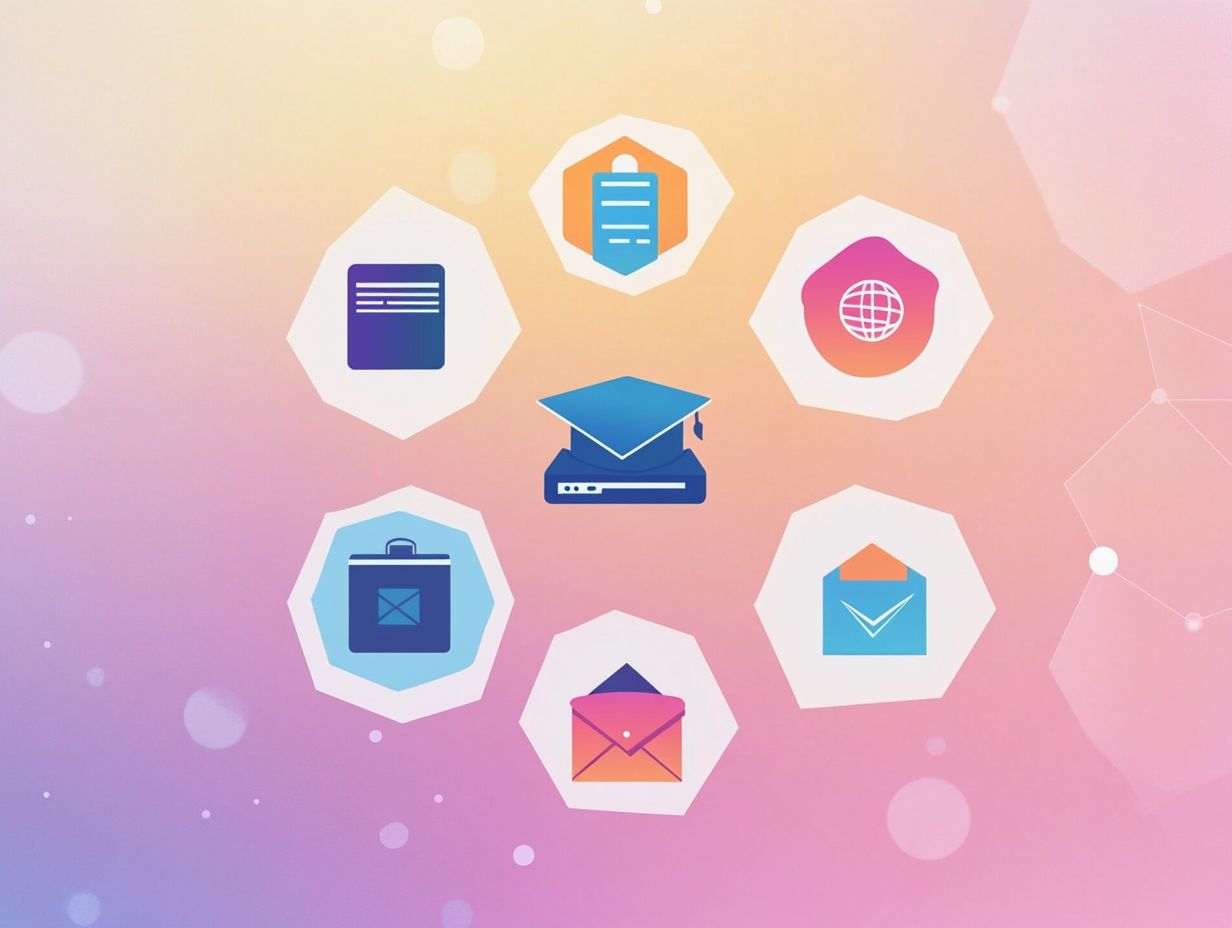
Cu les son los 5 elementos clave de programas de licenciatura en l nea efectivos?
Los 5 elementos clave de programas de licenciatura en línea efectivos son: diseño y entrega del curso, compromiso del estudiante, apoyo e interacción de la facultad, infraestructura técnica, y servicios de apoyo al estudiante.
C mo contribuye el dise o y la entrega del curso a un programa de licenciatura en l nea efectivo?
El dise o y la entrega del curso deben ser cuidadosamente planificados y optimizados para la experiencia de aprendizaje en l nea.
Incorpora multimedia, actividades interactivas y evaluaciones para mantener a los estudiantes comprometidos y facilitar el aprendizaje.
Por qu es importante el compromiso del estudiante en los programas de licenciatura en l nea?
El compromiso del estudiante es crucial porque ayuda a los estudiantes a mantenerse motivados y participar activamente en sus cursos.
Los programas en l nea efectivos utilizan m todos como foros de discusi n, trabajos en grupo virtuales y retroalimentaci n oportuna para mantener a los estudiantes comprometidos.
C mo impacta el apoyo y la interacci n de la facultad en el xito de los programas de licenciatura en l nea?
El apoyo y la interacci n de la facultad son claves, ya que ayudan a los estudiantes a sentirse conectados y apoyados.
La comunicaci n regular, la retroalimentaci n oportuna y la disponibilidad para horas de oficina virtuales son formas en que la facultad puede apoyar a los estudiantes en l nea.
Por qu es importante una estructura t cnica s lida para el xito de los programas de licenciatura en l nea?
Una estructura t cnica s lida es esencial, ya que asegura que los estudiantes tengan acceso a una plataforma de aprendizaje confiable.
Esto incluye una plataforma en l nea donde se encuentran los cursos y materiales, Internet de alta velocidad y soporte t cnico.
Qu tipos de servicios de apoyo al estudiante deber an estar disponibles en programas de licenciatura en l nea efectivos?
Los estudiantes merecen el mejor apoyo posible!
Servicios como asesoramiento acad mico y tutor as en l nea les preparan para un futuro brillante, ayud ndoles a navegar su camino acad mico y prepararse para sus futuras carreras.






